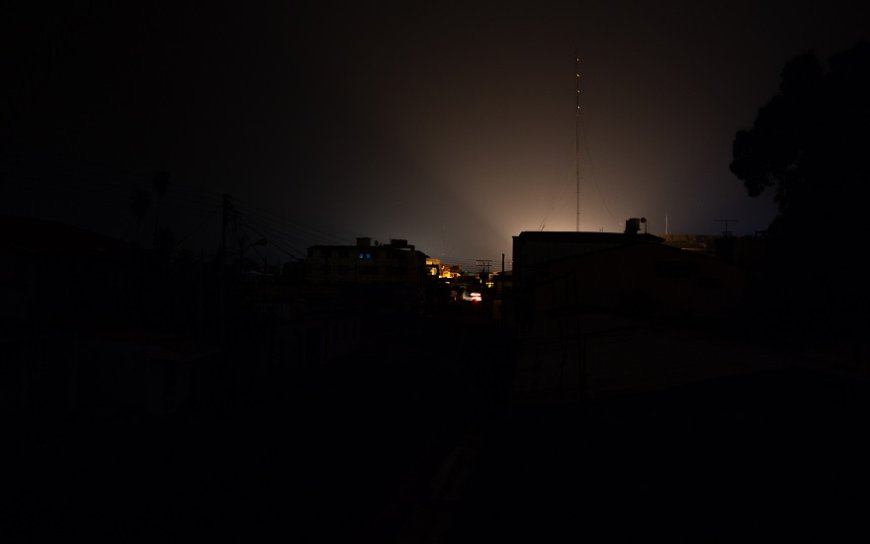Widespread Blackout Disrupts Central and Southern Iraq: Authorities Scramble to Restore Power
A massive blackout has affected central and southern Iraq in August 2025, disrupting daily life and exposing critical infrastructure challenges amid ongoing restoration efforts.

A major power outage has plunged central and southern Iraq into darkness, affecting millions of residents and severely disrupting daily life. The blackout, which began early Tuesday morning, has impacted key cities including Baghdad, Basra, Najaf, and Karbala. Iraqi authorities have mobilized emergency teams to diagnose the cause and restore electricity, but concerns are mounting over the country’s aging power infrastructure and its ability to meet growing demand.
This extensive outage highlights the ongoing challenges Iraq faces in maintaining reliable electricity services amid economic constraints, infrastructure degradation, and increasing consumption. The blackout’s immediate effects ripple across households, businesses, healthcare facilities, and essential services, underscoring the critical need for urgent reforms and investments.
Scope and Impact of the Blackout
The blackout began around 3:00 AM local time on August 12, 2025, initially reported in Baghdad before quickly spreading to southern provinces. Millions of Iraqis were left without power for several hours, with some areas still experiencing intermittent outages as of the afternoon.
The disruption has caused:
-
Suspension of public transportation and traffic signal failures, creating congestion and safety hazards.
-
Closure of businesses and markets, resulting in significant economic losses.
-
Interruption of water supply systems, affecting access to clean water.
-
Challenges in hospitals and clinics, where backup generators have been stretched thin.
-
Communication disruptions, including limited internet and mobile network outages.
Many residents reported concerns about food spoilage due to refrigerator failures and the inability to perform routine tasks requiring electricity.
Causes and Diagnosis of the Power Failure
Preliminary investigations by the Ministry of Electricity suggest the blackout was triggered by a critical failure at a major transmission substation near Baghdad. Officials cite an equipment malfunction compounded by overloads on the national grid.
Iraq’s power system remains vulnerable due to:
-
Aging and poorly maintained infrastructure that has suffered decades of neglect and war damage.
-
Frequent load shedding as demand often outstrips supply.
-
Dependence on outdated thermal power plants and fuel supply disruptions.
-
Insufficient investment in grid modernization and renewable energy alternatives.
Minister of Electricity, Dr. Hassan Al-Jubouri, acknowledged the challenges in a press briefing, stating, “We are working around the clock to restore power and prevent future incidents. However, the scale of the problem requires sustained investment and modernization.”
Government and Emergency Response
The Iraqi government has declared an emergency response protocol to manage the crisis:
-
Deployment of repair crews to affected substations and power plants.
-
Activation of backup generators in critical facilities including hospitals and water treatment plants.
-
Coordination with local authorities to maintain public safety and minimize disruptions.
-
Communication efforts to update the public on restoration progress and safety advice.
Despite these efforts, full restoration may take several days due to the extent of damage and logistical complexities.
Infrastructure Challenges Underpinning the Crisis
Iraq’s electricity sector faces longstanding challenges:
-
Post-conflict Reconstruction Needs: Years of conflict have damaged energy infrastructure, including power plants, transmission lines, and substations.
-
Rapid Urbanization and Population Growth: Increasing demand outpaces supply, especially in urban centers.
-
Fuel Supply Issues: Interruptions in natural gas and fuel oil deliveries affect generation capacity.
-
Funding and Governance Issues: Limited financial resources and bureaucratic inefficiencies hinder large-scale upgrades.
-
Security Concerns: Attacks on energy infrastructure by insurgent groups exacerbate vulnerabilities.
Economic and Social Ramifications
The blackout compounds the daily hardships faced by Iraqis amid economic instability and inflation. Power outages disrupt commerce, reduce productivity, and strain household budgets.
Key economic impacts include:
-
Losses in the retail and manufacturing sectors due to halted operations.
-
Increased costs for private power generation through diesel generators.
-
Negative effects on small businesses and informal sector workers.
-
Diminished investor confidence in Iraq’s infrastructure reliability.
Socially, prolonged outages threaten public health and safety, particularly in vulnerable communities reliant on medical equipment and clean water supply.
Expert Perspectives on Iraq’s Power Sector
Energy analyst Dr. Layla Abbas comments, “The blackout exposes structural weaknesses in Iraq’s power system. Without urgent reforms and investment, outages will remain a recurrent problem, undermining social stability and economic growth.”
She advocates for a comprehensive strategy incorporating:
-
Diversification of energy sources, including renewables like solar and wind.
-
Modernization of the grid with smart technologies to manage demand efficiently.
-
Strengthening of institutional governance to ensure transparent and effective management.
-
Regional cooperation for fuel supply security and infrastructure sharing.
Regional and International Assistance
International partners have pledged support for Iraq’s energy sector reforms:
-
The World Bank and International Monetary Fund have earmarked funds for energy infrastructure projects.
-
The United Nations Development Programme (UNDP) assists in capacity building and renewable energy initiatives.
-
Neighboring countries engage in dialogue to stabilize cross-border energy exchanges.
These collaborations are essential for building resilience and reducing the frequency of blackouts.
Outlook and Recommendations
To mitigate future crises and enhance reliability, Iraq must prioritize:
-
Accelerated infrastructure investment with transparent procurement and oversight.
-
Energy sector reform policies that incentivize efficiency and private sector participation.
-
Community engagement and communication to manage expectations during outages.
-
Adoption of renewable energy to diversify supply and reduce dependence on fossil fuels.
-
Improved maintenance and training programs for technical personnel.
Addressing these will require coordinated government action, international support, and sustained political will.
Conclusion
The widespread blackout in central and southern Iraq on August 12, 2025, is a stark reminder of the critical vulnerabilities within the country’s power infrastructure. As millions of Iraqis cope with the immediate impacts, authorities face the urgent challenge of restoring electricity and implementing long-term solutions.
Reliable power supply is not only vital for daily life and economic activity but also fundamental to Iraq’s broader aspirations for stability and development. The coming weeks will test the government’s ability to manage the crisis effectively while laying groundwork to prevent future outages.











